Symbols are instruments used by political parties and politicians to communicate and are sometimes adopted by their followers as a form of political support.
In Nigeria, since the first republic, some politicians and leaders of political groups have created their own recognizable styles and sometimes as a way to promote their respective interests or represent their ideals.
The first Premier of the Western Region and leader of Action Group, Obafemi Awolowo was known for his thick circular rimmed spectacles and the iconic “fez cap” that some of his loyalists eventually adopted.
As the February 25 presidential election draws nearer, Daily Trust highlights some of the presidential candidates whose clothing styles are considered unique.
- Tinubu: How I’ll tackle insecurity, improve economy
- Supporters Injured As explosion rocks Rivers APC Rally
Tinubu’s “infinity” caps
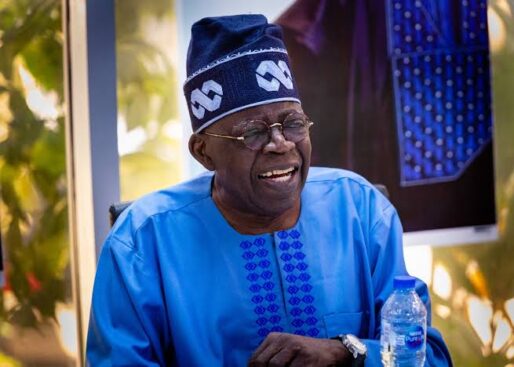
One of the presidential candidates whose item of clothing is easily identifiable and serves as his political symbol is the former Lagos State governor and the All Progressives Congress standard bearer, Asiwaju Bola Ahmed Tinubu.
Like Awolowo, he uses circular rimmed spectacles with a cap different from that of the late Western Region’s leader. He uses a bent cap associated with the Yoruba cultural group, which has infinity signs embroidered on it.
This style has been Tinubu’s signature for decades and there are sculptures and frames in such appearances in his loyalists’ offices.
According to Tinubu, the embroidered infinity symbol on the cap is “a broken shackle depicting freedom.”
Commenting on it, he once said, “Philosophically, it is my belief and faith in education, in freedom fighting. On my cap is a broken shackle. It is freedom. The shackle is broken and you cannot put us in bondage anymore. You have broken the shackle of poverty, ignorance, disease.
“You develop the capacity to improve the quality of the lives of the people. It has been my philosophy and it will remain my philosophy. My office’s symbol is Freedom House. Freedom means everything to me, the freedom of man. You can find me on the street fighting against injustice,” he added.
Many followers of Tinubu also wear the bent Yoruba traditional caps with the symbol to show acceptance of his leadership ideals, especially during his campaign rallies.
Peter Obi’s black outfits
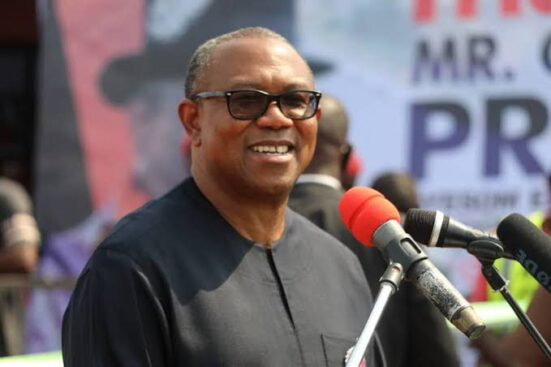
The presidential candidate of the Labour Party, Peter Obi, has also established a dressing style with which he is increasingly recognized: his apparent likeness for black clothes.
Findings have revealed that Obi commenced wearing black garments since when he was the governor of Anambra State, but he sometimes wears other colours that are mostly dark such as brown and navy blue.
It has also been observed that his consistence in wearing black outfits heightened since after declaring his ambition to join the 2023 presidential race, as he is mostly seen in black during public functions.
Some have said his choice of colour could be likened to his famed frugality.
But during an interview in 2021, he said he liked wearing black shoes because “it matches almost all the colours.”
“Whenever I go out with my wife, I witness the stress in her body. She would be shouting at everybody, saying, where are my red shoes, where is this and that. This is just to go out and she is trying to match this to that. Sometimes, she would ask me if I saw her red shoes. By the time she goes out and come back, she would be tired and exhausted.
“This is why I keep to black shoes because it saves me a lot of stress and matches almost all the colours,” he explained.
Some of his supporters called ‘Obidients’ have also been seen showing up at functions dressing in black as a way of expressing allegiance.
Kwankwaso’s red caps
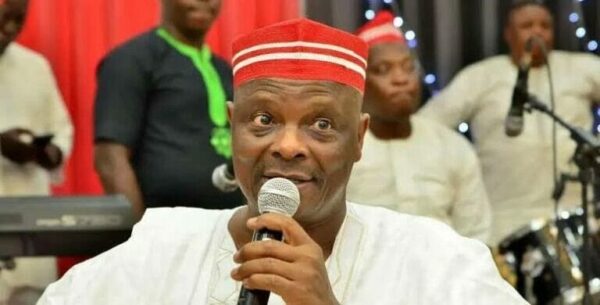
On May 29, 2011, Kano residents woke up to the bizarre sight of thousands of people donning spotless white garments with red caps on their heads, flooding the streets of Kano city merrily chanting praises of the then governor-elect of the state, Rabi’u Musa Kwankwaso, who was about to be sworn in.
At Sani Abacha Stadium, the venue of the inauguration, Kwankwaso and his then deputy, Dr. Abdullahi Umar Ganduje, also donned red caps and white robs, joining thousands of other loyalists who had literally turned the venue into a sea of red and white.
After the inauguration, the governor handed down a directive to both his officials and supporters to adopt the symbolic red cap as a dress code, officially announcing the birth of the Kwankwasiyya Movement or the Red Cap Revolution.
To Kwankwaso and his followers, the red cap was not just a symbol, it is a both moral code of conduct and a way of life.
Kwankwaso’s red cap has not only been his political symbol since he became a governor, but has been a clothing item the followers of his political movement known as Kwankwasiyya wear as a sign of loyalty.
Using a red cap as an expression of support for Kwankwaso or his political ideals has become so popular in Kano.
Also, many infrastructural development projects in the state during Kwankwaso such as bridges and government buildings were painted red as a way of stamping the Kwankwasiyya government on them.
It is also said that whenever a member of the movement burns their red cap, it symbolizes the departure of the said member from the movement.
After the fall out between Kwankwaso and Ganduje, some Kwankwasiyya members who decided to join Ganduje were seen in viral videos burning their red caps.
Atiku’s ‘Damanga’ caps
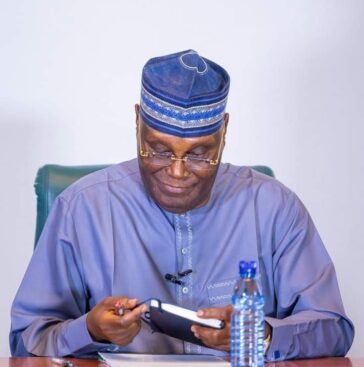
Although the presidential candidate of the Peoples Democratic Party (PDP), Atiku Abubakar doesn’t have a unique style or a political symbol that’s particularly pronounced as in the case of Tinubu, Obi and Kwankwaso, he has been observed to only wear a popular northern Nigerian cap called “Damanga”.
Since when Atiku was noticed in the Nigerian political scene up to his days as the vice president during former President Olusegun Obasanjo-led administration, he has been wearing different outfits but maintains his apparent likeness for Damanga caps that come in different colours and designs.
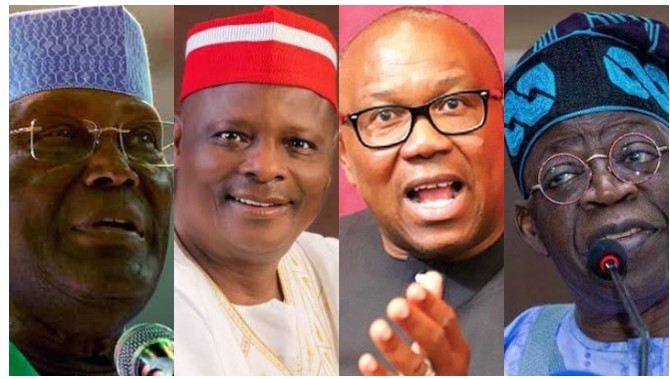
 Join Daily Trust WhatsApp Community For Quick Access To News and Happenings Around You.
Join Daily Trust WhatsApp Community For Quick Access To News and Happenings Around You.


